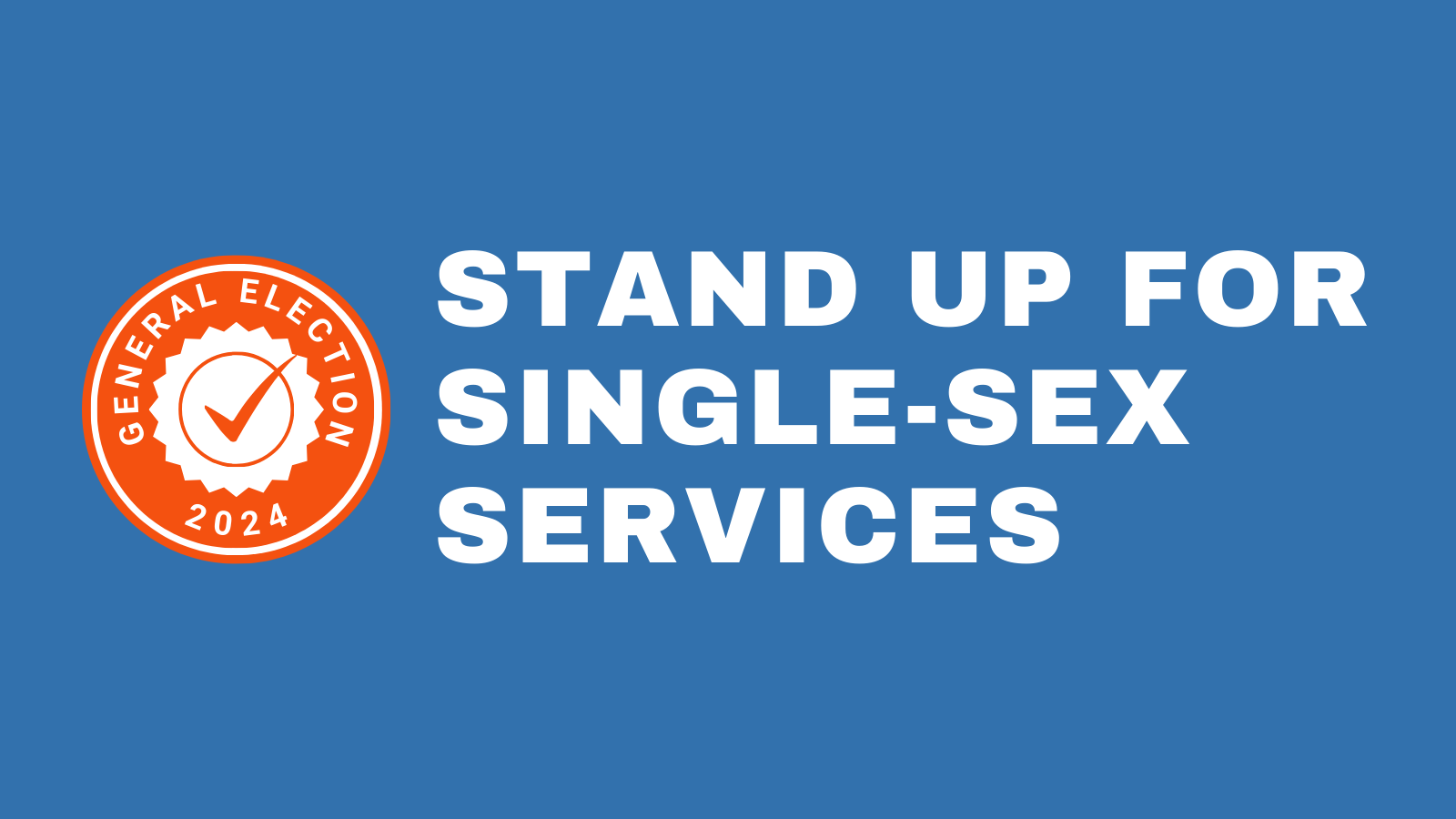Stand up for single-sex services
You have the power to protect women’s rights, save women’s sport, and protect lesbian, gay and other single-sex associations. Find out more today!
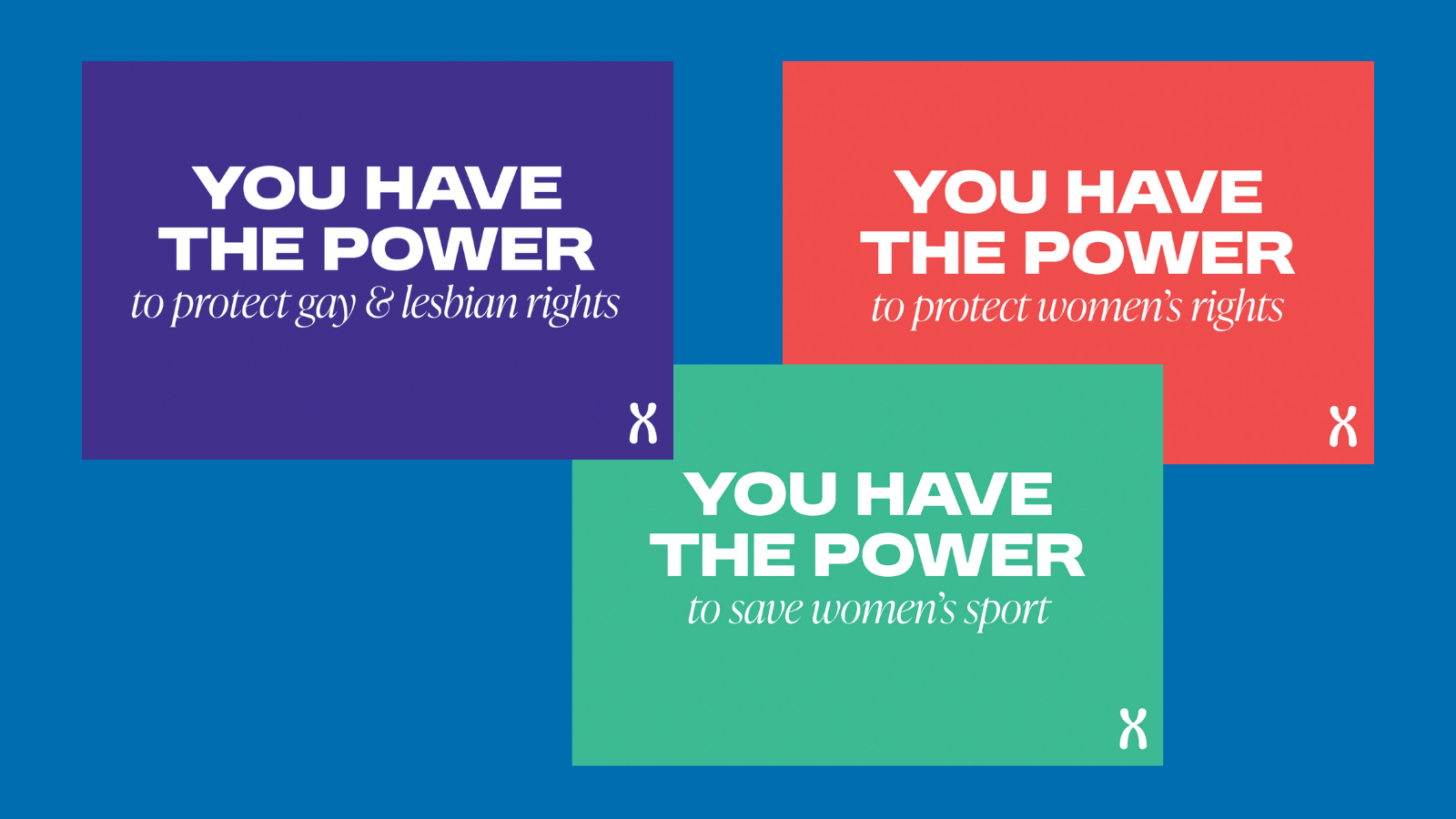
Sign up now to get email updates on our campaigns
What are single-sex services?

Everyday spaces
Places where everyone feels safer with single-sex privacy: changing rooms, showers, toilets, spaces for health and social care, hospital wards, dormitories. See the key findings from our survey on why single-sex services matter.

Clubs and associations
Groups for women and girls, such as Girlguiding, Women’s Institute and La Leche League, and for men and boys, such as Men’s Sheds and clubs for gay men. Learn more from our report Lesbians without liberty.

Sports
Sports that are fair and safe for women and girls training and competing at every level from elite sport to school sport and recreational activities. Read Fair Play For Women's report on “inclusion” in sport.

Specialist services
Services that safeguard women and men at their most vulnerable: women’s refuges, rape-crisis centres, prison and probation services, drug rehabilitation. See the summary of our recent report on the women’s sector.
What’s the problem?
The law allows single-sex services, and most people want them, but they are under attack.
Organisations and their staff are confused, even though everybody knows the difference between male and female.
Language has become a battleground and everyone is walking on eggshells.
No one wants to be the one to tell someone that their sense of gender identity cannot override rules that protect the safety, fairness and dignity of everyone.
- Confusion makes services less inclusive and less safe. It creates conflict and it isn't kind, least of all to women.
- It is up to the government to put this right.
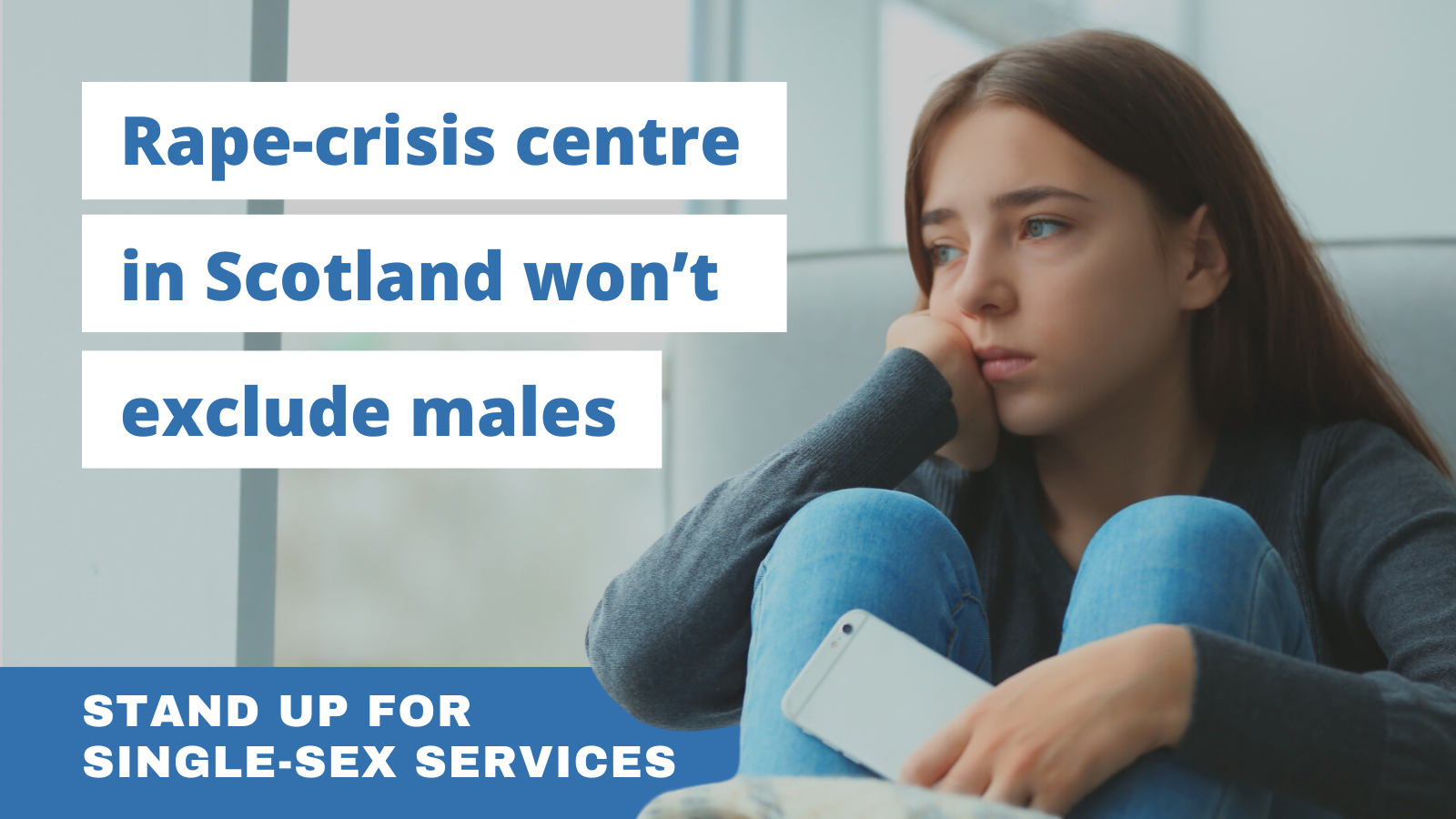
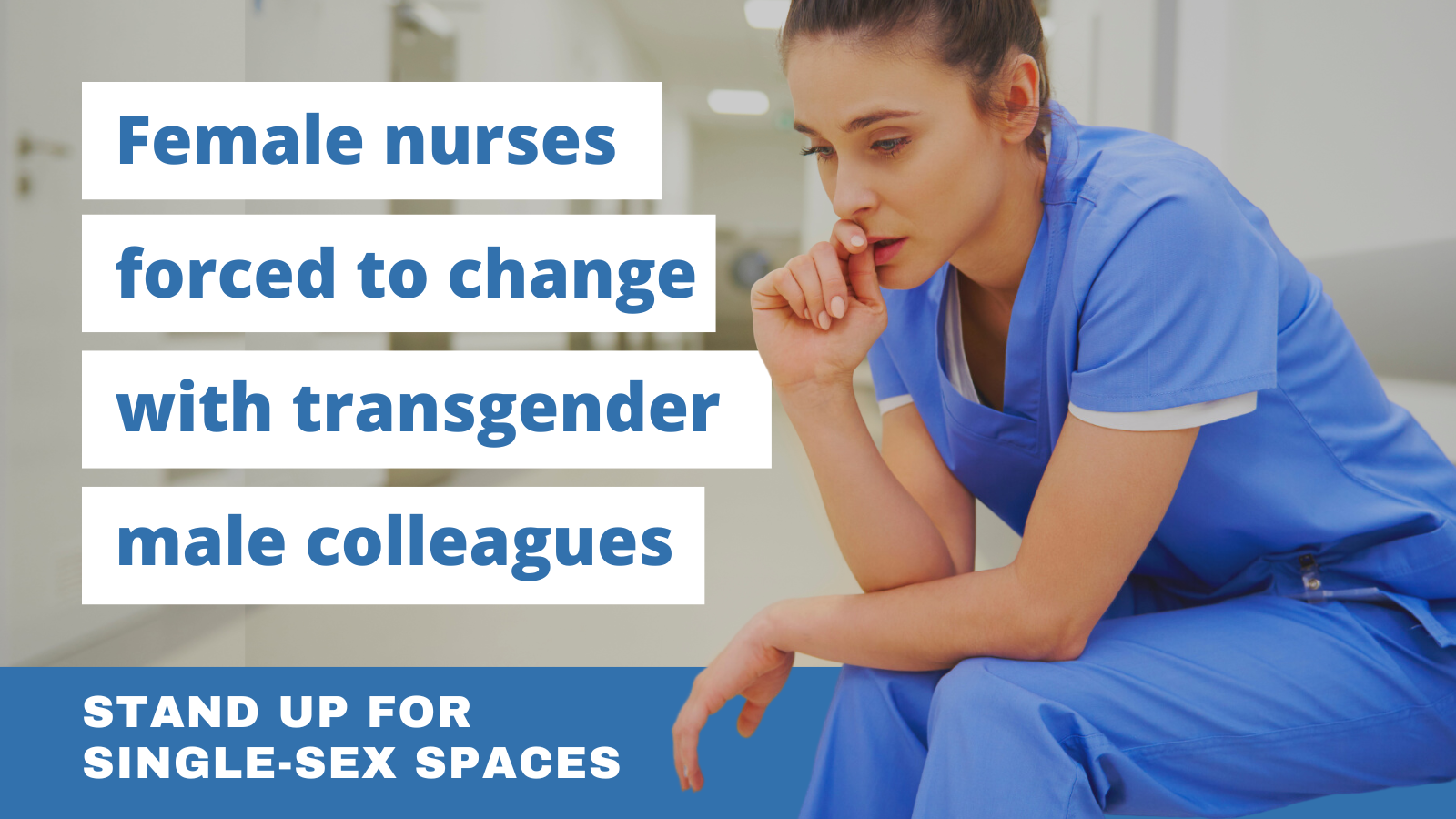
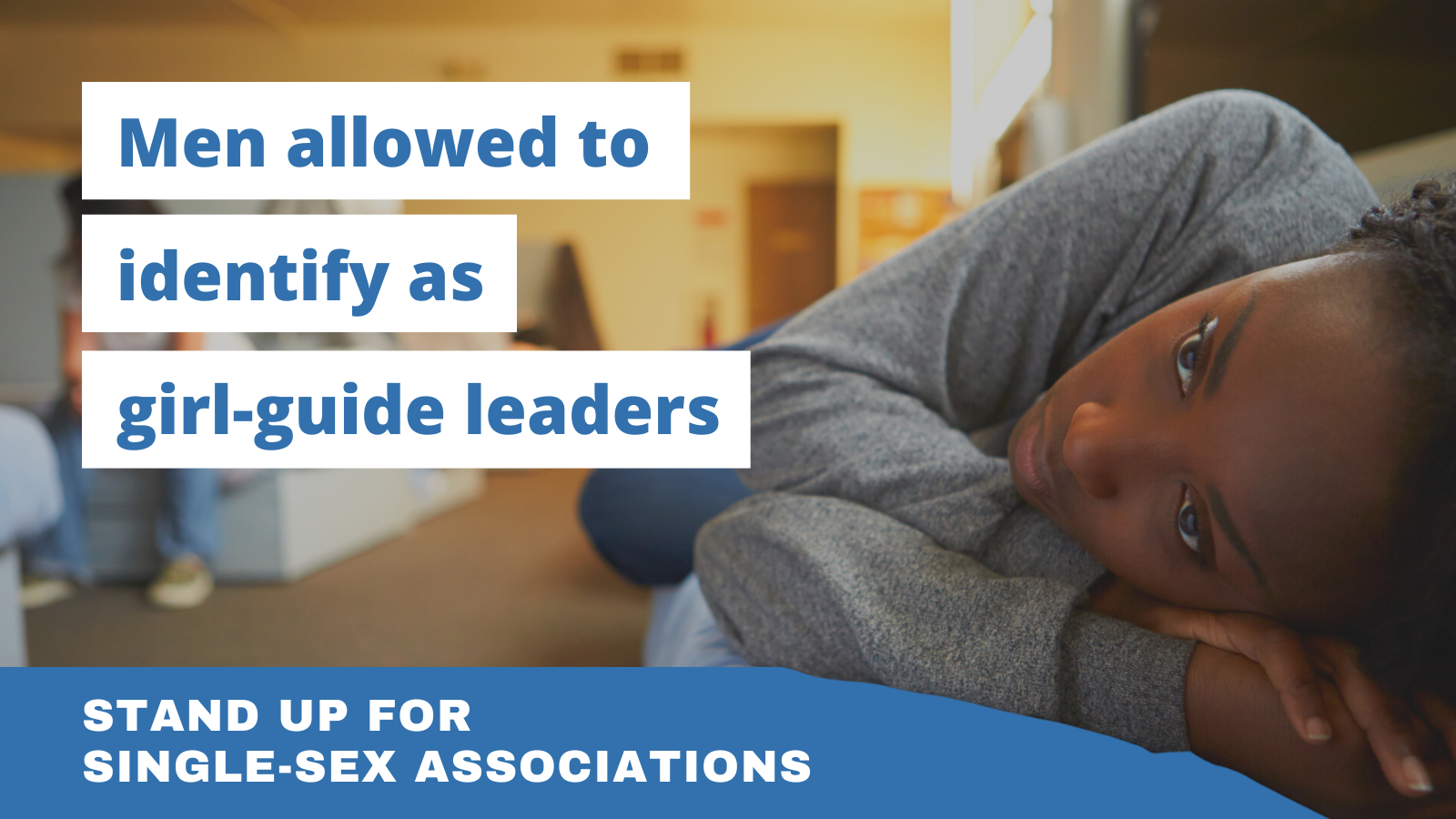

What’s the solution?
The new government must stand up for sex-based rights and safeguarding. It needs to provide clarity in law and make policies based on the objective reality of sex, not the subjective feeling of “gender identity”.
-
Ensure clear language, rules and data wherever sex matters.
When it comes to policy-making on sex and gender issues, the key areas for the new government will be education and health. In these departments, and right across government, the solutions will be sex-based language, clear rules and data collected on the objective reality of sex, not subjective “gender identity”.
-
Implement the Cass Report and stop transitioning children in schools.
Sex Matters calls on all parties to commit to implementing the Cass Review. This means an end to children being prescribed puberty blockers or socially transitioned in schools. This should be supported with clear guidance about sex-based rules for schools from the Department for Education. Every education professional should understand that no child can be treated in school as a member of the opposite sex. Sex-based rules are there to protect and support all pupils, and children cannot be kept safe unless there is clarity about the sex of everyone around them.
-
Drop dangerous plans to criminalise so-called “conversion therapy”.
Plans to ban so-called “conversion therapy” (in reality, evidence-based talking therapy) should be dropped. Any such law is bound to criminalise loving parents and ethical therapists, and to cause a chilling effect that will make it harder for gender-distressed people to get the support they need.
-
Any party that is serious about being in government must commit to making the definition of sex in the Equality Act clear. The current lack of clarity means service providers, from pubs and gyms to rape-crisis centres, are failing to understand the law, opening women-only spaces to men who identify as women and buckling under fear of litigation. The result is that women’s privacy, safety and dignity have been undermined.
-
Guarantee women’s right to female-only spaces.
Parties must commit to giving women the right to female-only spaces in both everyday and specialist situations. This includes all public and private-sector facilities that have toilets and changing rooms, as well as hospital accommodation. It also includes specialist women’s sector facilities such as domestic violence shelters, rape crisis centres and prisons, as well as female-only sports.
-
Say no to legal gender self-ID.
There should be no move towards gender-self ID, whether openly or by stealth. The current lack of clarity on the meaning of “sex” in the Equality Act means any measure that makes it easier to gain a gender-recognition certificate would be disastrous for the rights of women and girls.
-
Record sex accurately in healthcare and the criminal justice system.
The removal of sex-based terms in healthcare and the justice system must end. Sex is always relevant in healthcare, and patients need to know that their records are accurate and that when they are asked about their sex or request a carer of the same sex, everyone is talking about biology, not identity. Sex also matters whenever a crime is committed. Misrecording male offenders as female makes it impossible to study patterns of criminality. When prison and police officers search suspects and prisoners, it’s the sex of both parties that matters, not their gender identity. Imprisoning trans-identifying men in women’s prisons is a breach of female inmates’ human rights.
-
Fix the sex data muddle with modern data systems.
It is crucial to fix the muddle that has been made of official data. The next government will inherit systems of recording sex that are a tangled, dangerous mess. It should use the opportunity offered by modern digital data systems to develop a simple, clear protocol for accurately recording everyone’s sex. Everyone’s rights can then be protected by sharing that information when it is needed, and keeping it private when it is not.
-
Fairness, safety and opportunity in sport should be protected for women and girls at all levels by restricting eligibility for the female category to those born female, excluding all males however they identify.
-
Make regulators do their job and protect everyone’s rights.
Finally, the next government must press regulators and regulatory agencies to do their jobs and protect everyone’s rights. The Charity Commission must be instructed to ensure that single-sex charities do not undermine their own mission by adopting self-ID. The Office for National Statistics cannot be allowed to make another error on the same scale as in the 2021 census, which featured a widely misunderstood question about gender identity written to please transactivists. The Equality and Human Rights Commission must do more to stand up for single-sex services and against the bullying and harassment of workers who care about sex-based rights.
Take action now
-
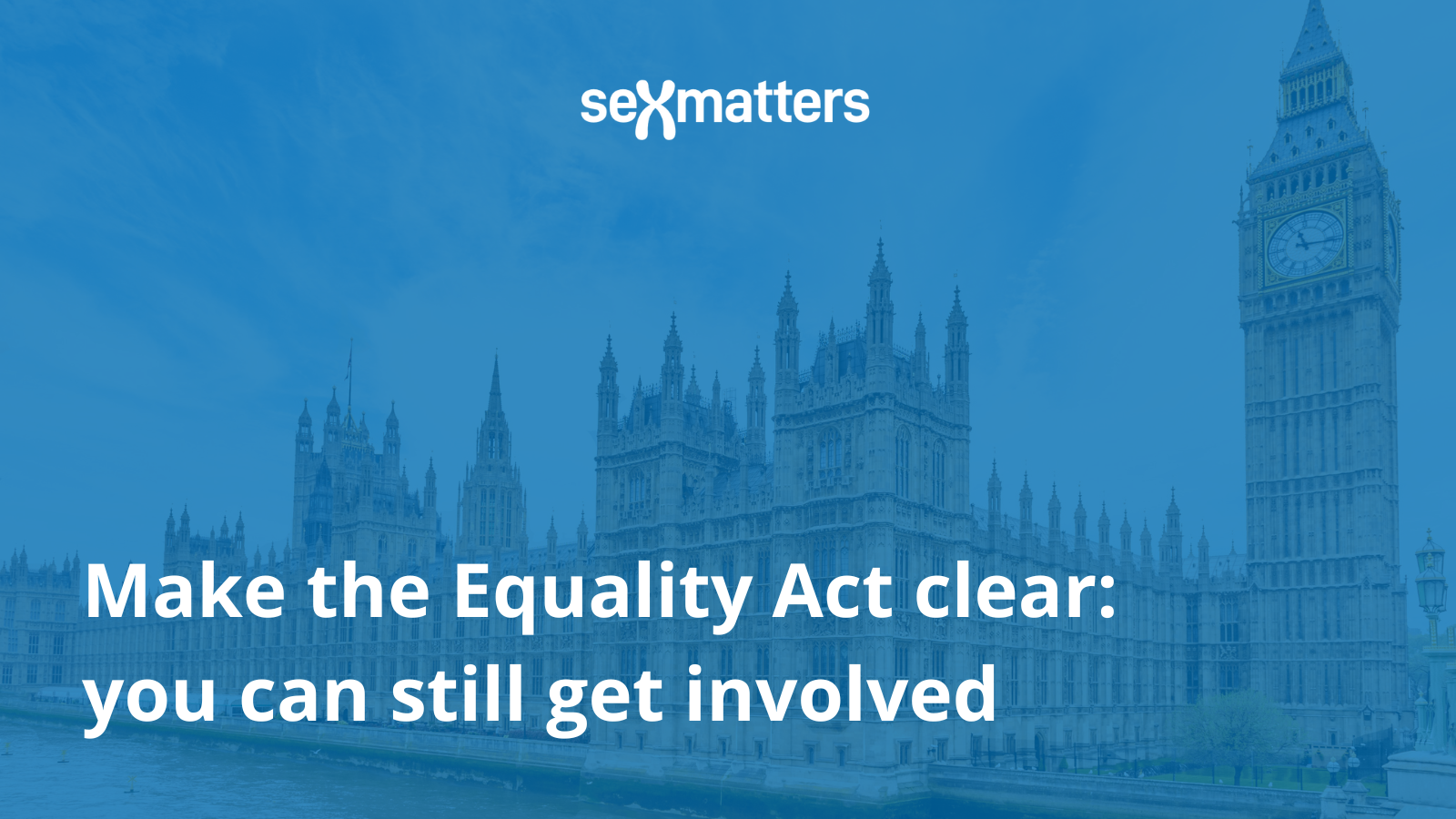
Ask your MP for a meeting
If you couldn't come to Lobby Day, you can still ask your MP for a meeting to share your...
25th September 2024
-
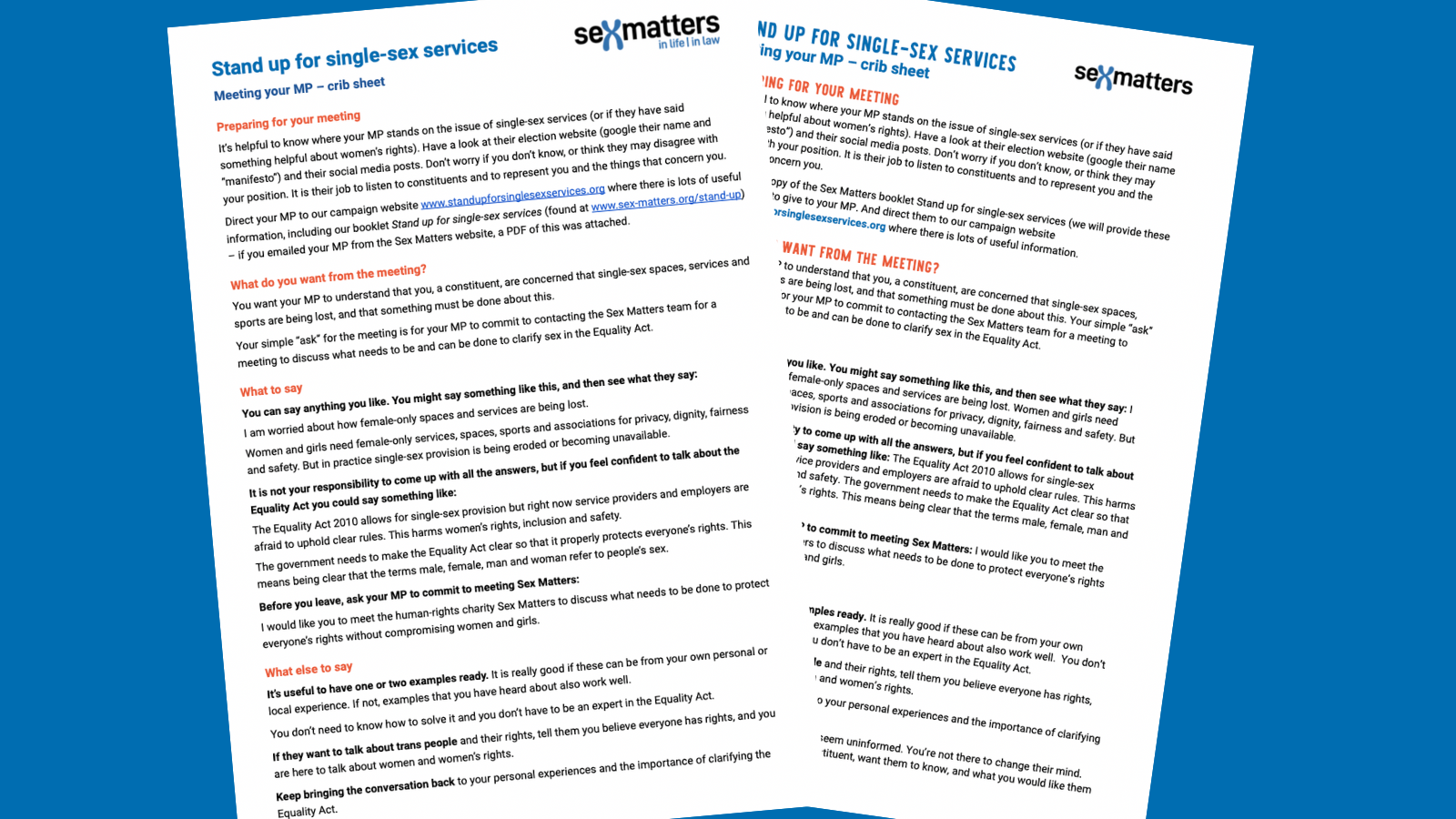
Use our crib sheet when you meet your MP
How to prepare, what to say, useful answers and some key facts. Prefer not to print it? Use the...
9th September 2024
-
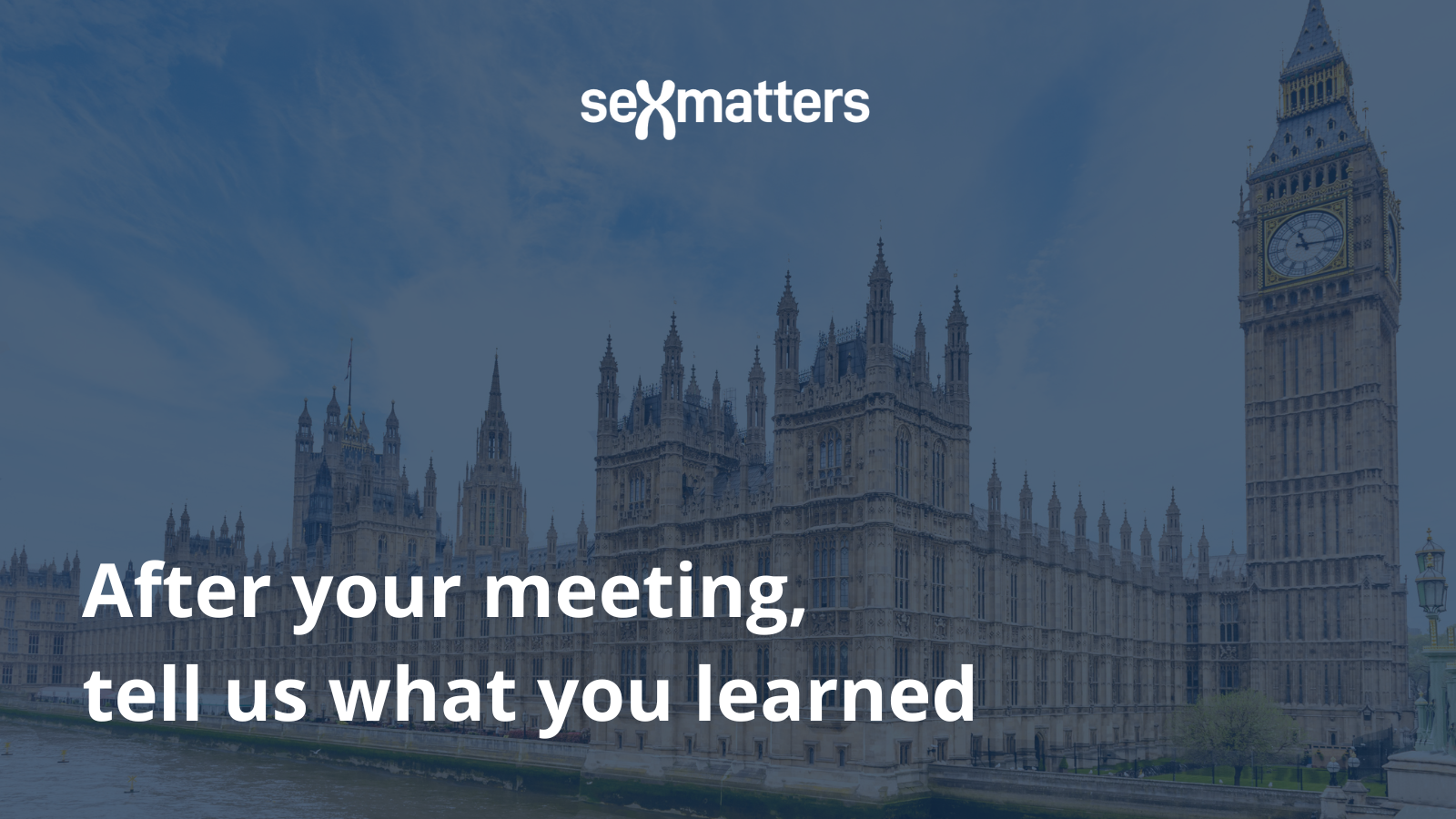
When you’ve had a meeting with your MP
Let us know how it went, so we can build up a picture of MPs’ support.
8th September 2024
-
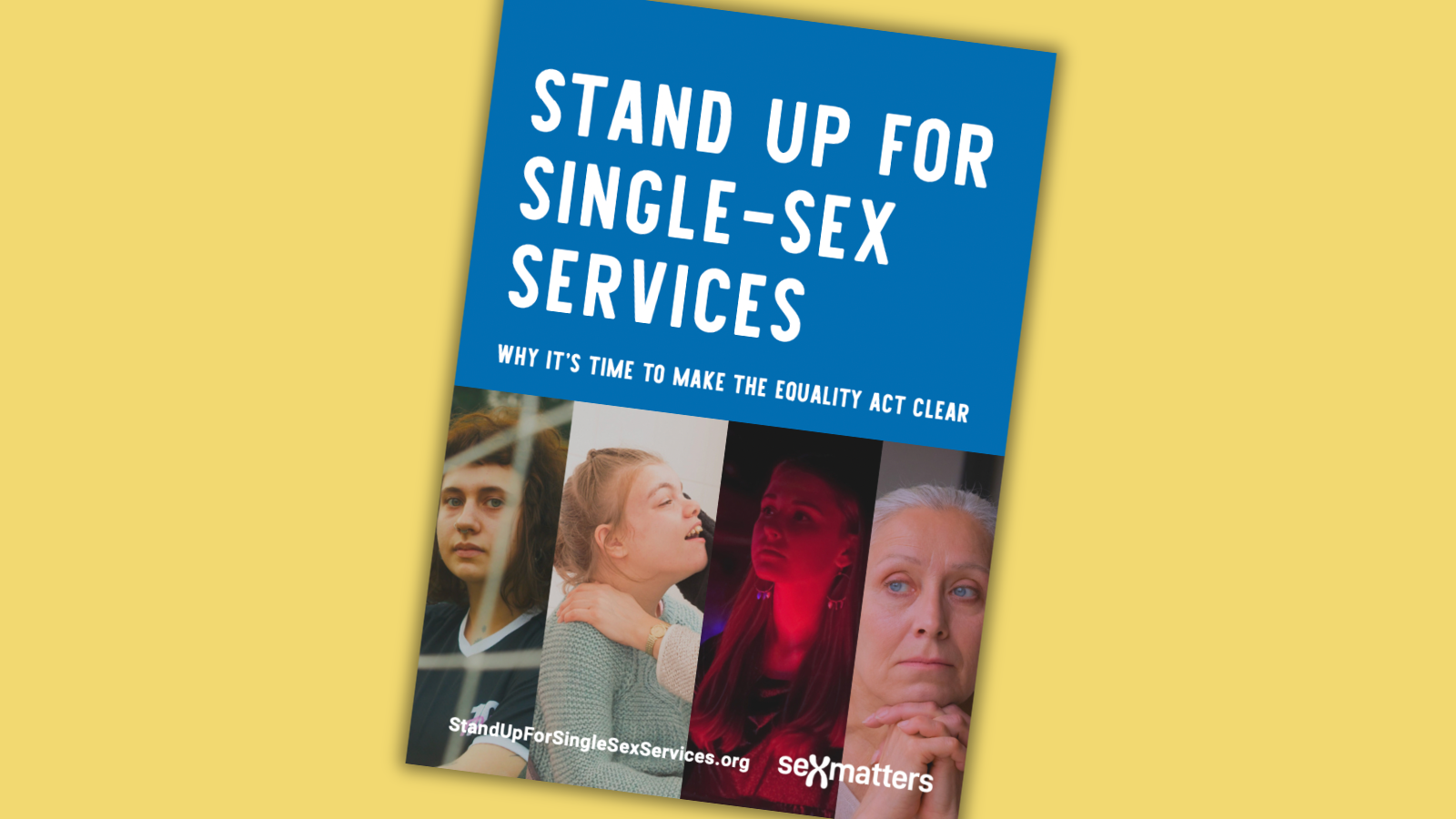
Share our new booklet ‘Stand up for single-sex services’
Not sure why single-sex services matter? Our Stand up for single-sex services booklet has both statistics and personal stories...
7th September 2024
-
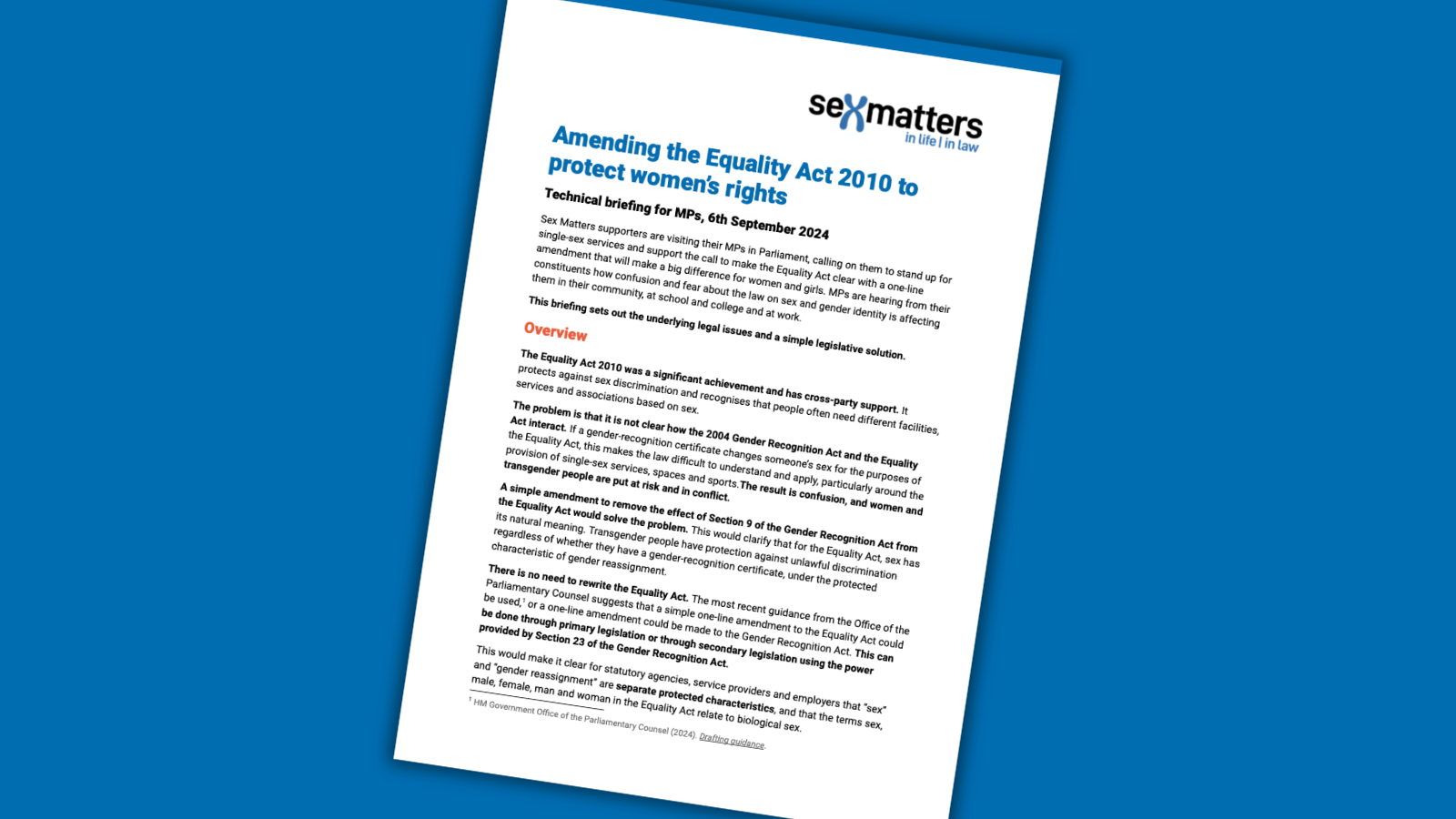
Explore the topic in detail
Our technical briefing for MPs on amending the Equality Act to protect women’s rights sets out the legal issues...
6th September 2024
In the media
-
Fiona McAnena on the BBC’s Nolan Live, 5th June 2024
Fiona McAnena challenges Stephen Nolan on male violence and single-sex spaces on Nolan Live.
5th June 2024
-
Helen Joyce on Sky News, 3rd June 2024
Helen Joyce discusses the Conservative pledge to clarify the meaning of sex in the Equality Act to mean biological...
3rd June 2024
-
Maya Forstater on BBC Radio 2, 3rd June 2024
On Jeremy Vine, Maya Forstater and Joanne Monck discuss the Conservative pledge to clarify the Equality Act.
3rd June 2024
Updates
-
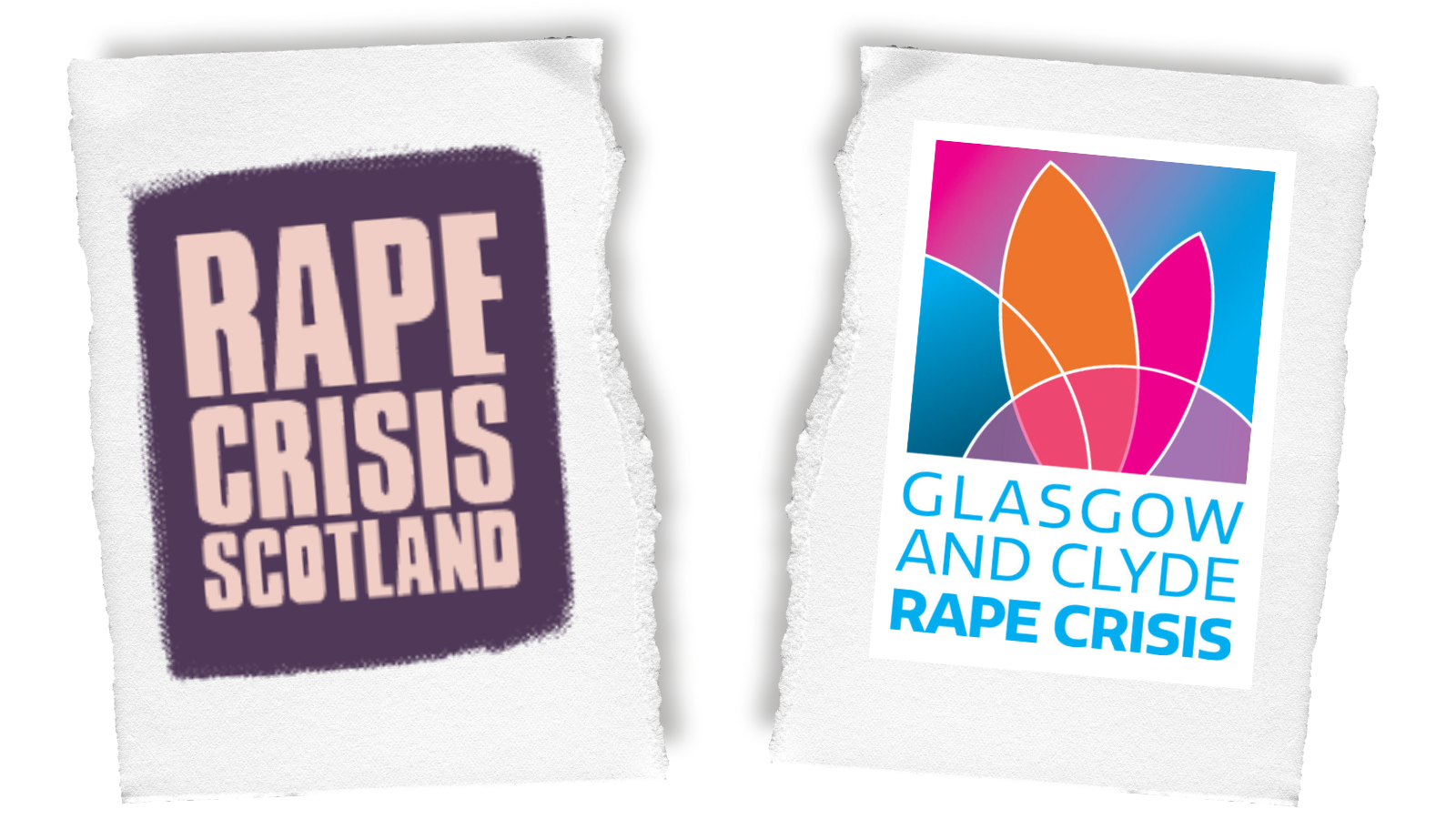
Glasgow and Clyde Rape Crisis has ended its relationship with Rape Crisis Scotland
Glasgow and Clyde Rape Crisis announced today that it is leaving the Rape Crisis Scotland network. This is the...
25th October 2024
-
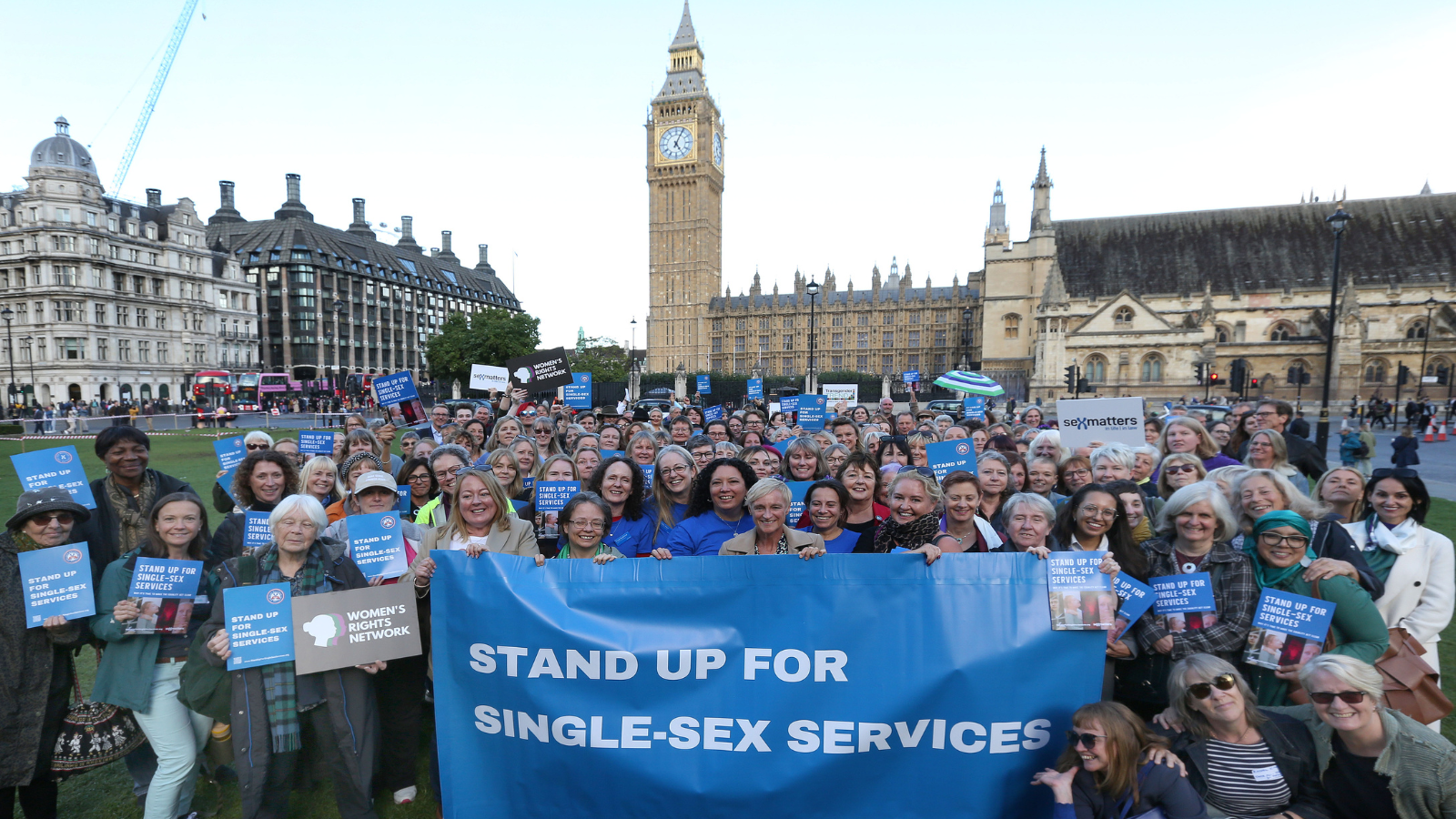
Lobby Day: 11th September 2024
On Wednesday 11th September, hundreds of women and men came to Parliament to tell their MPs to stand up...
4th October 2024
-
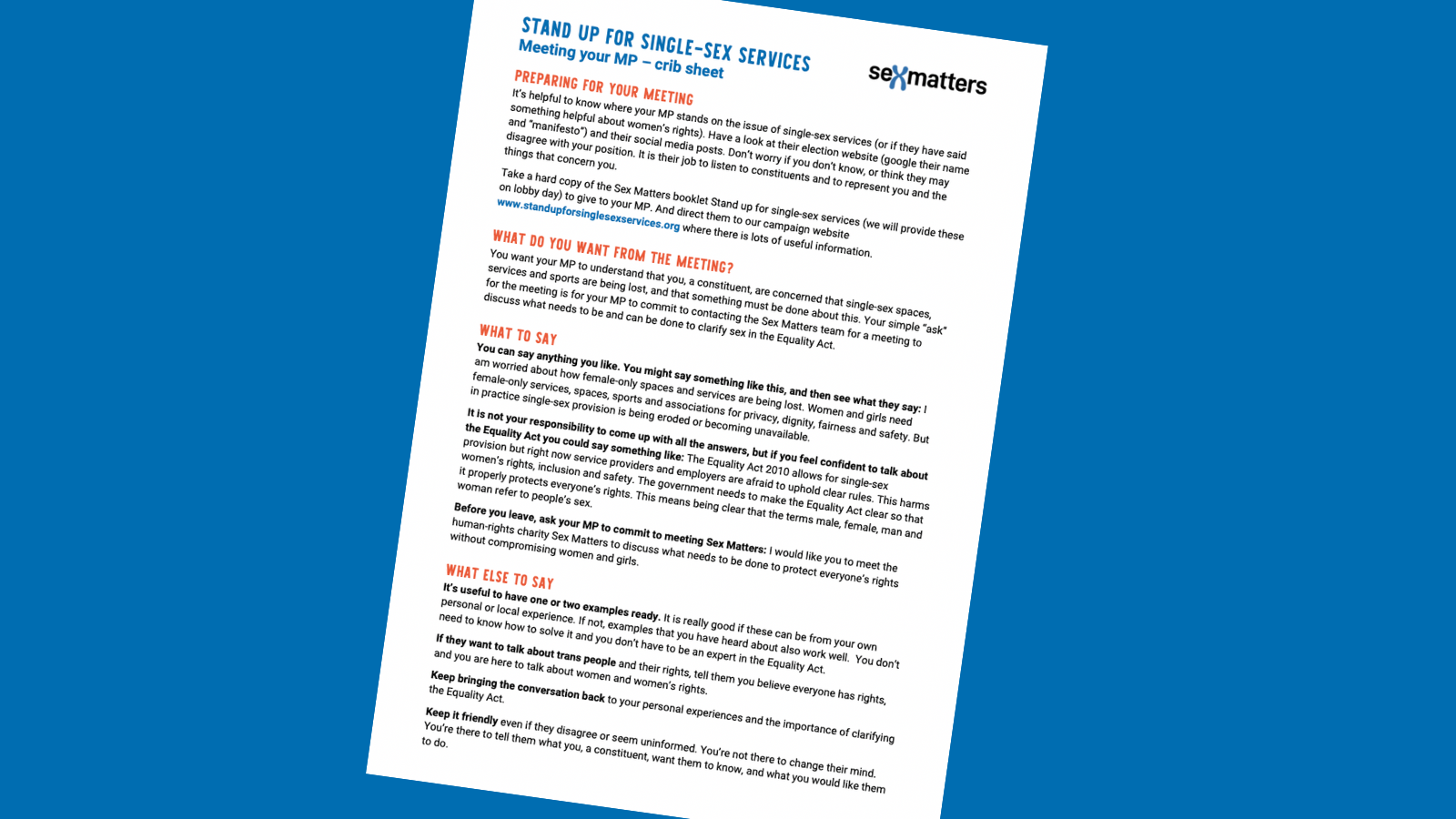
Meeting your MP – crib sheet
Mobile-friendly version
Stand up for single-sex services9th September 2024
-
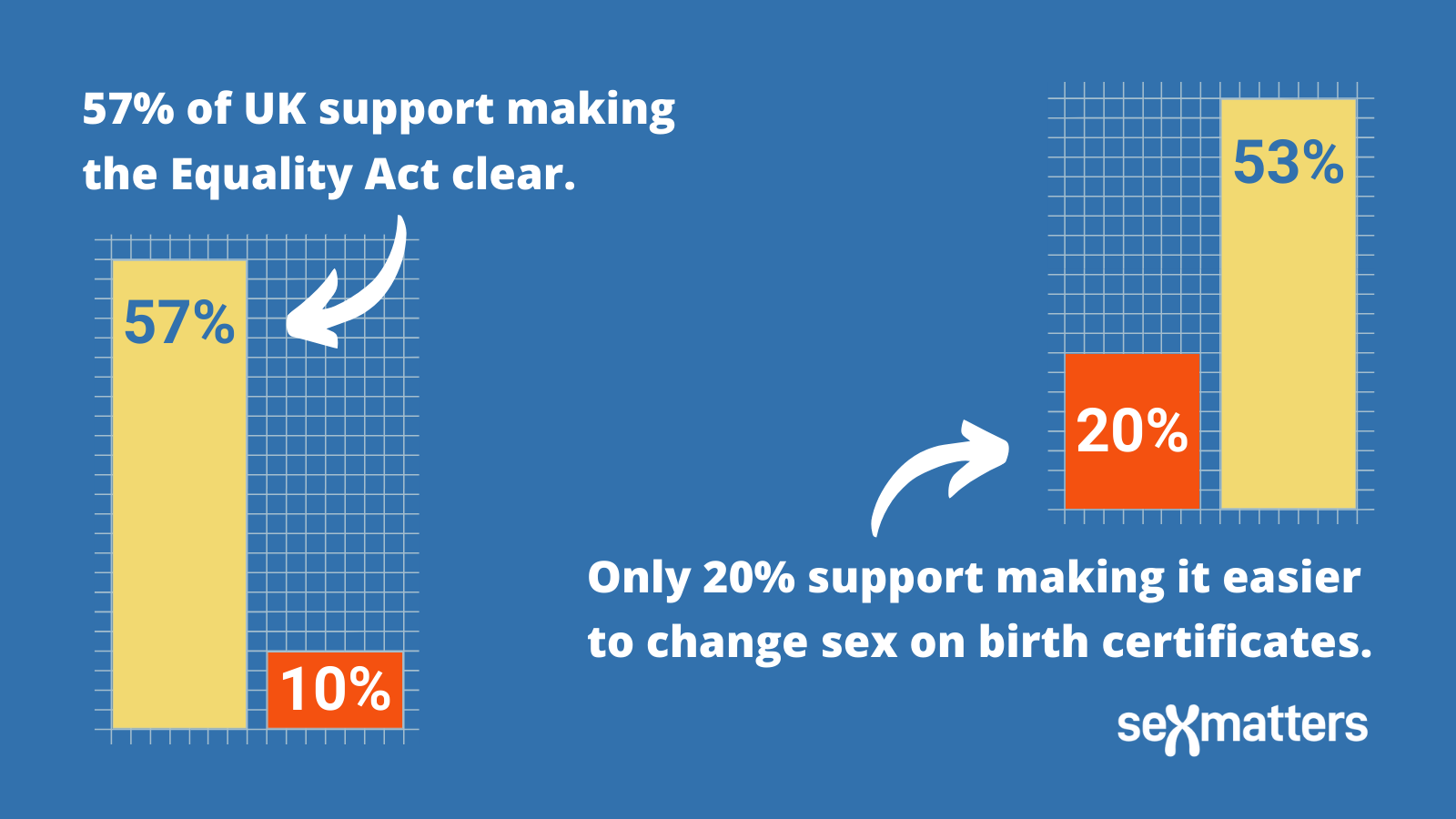
New poll finds voters want to make the Equality Act clear
As reported in the Telegraph, Daily Mail, Express and Sun today, voters across the political spectrum are more supportive...
5th July 2024
-
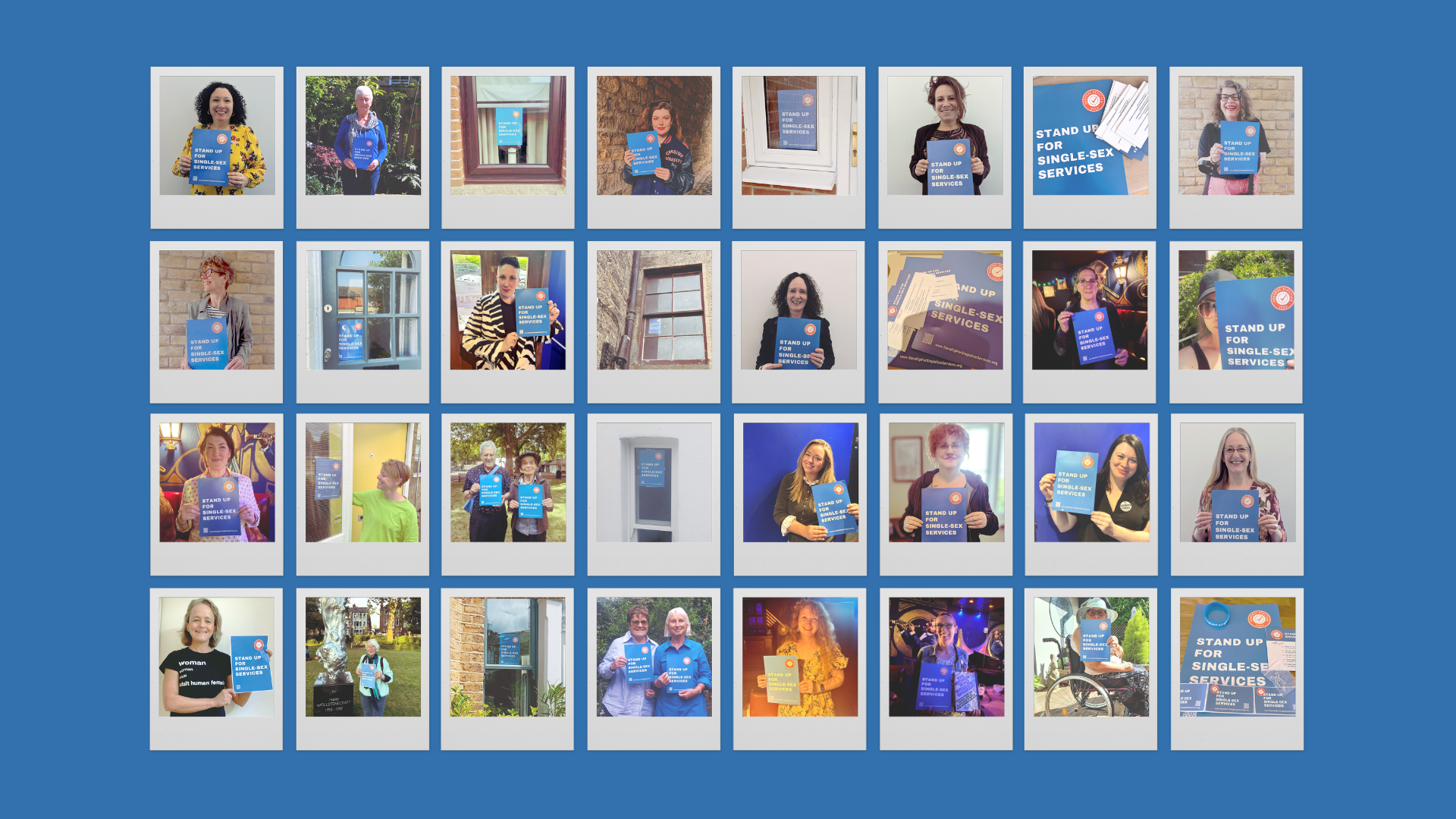
Sex matters and the new government
The UK has a new prime minister and we now know there will be a new Labour government, with...
5th July 2024
-
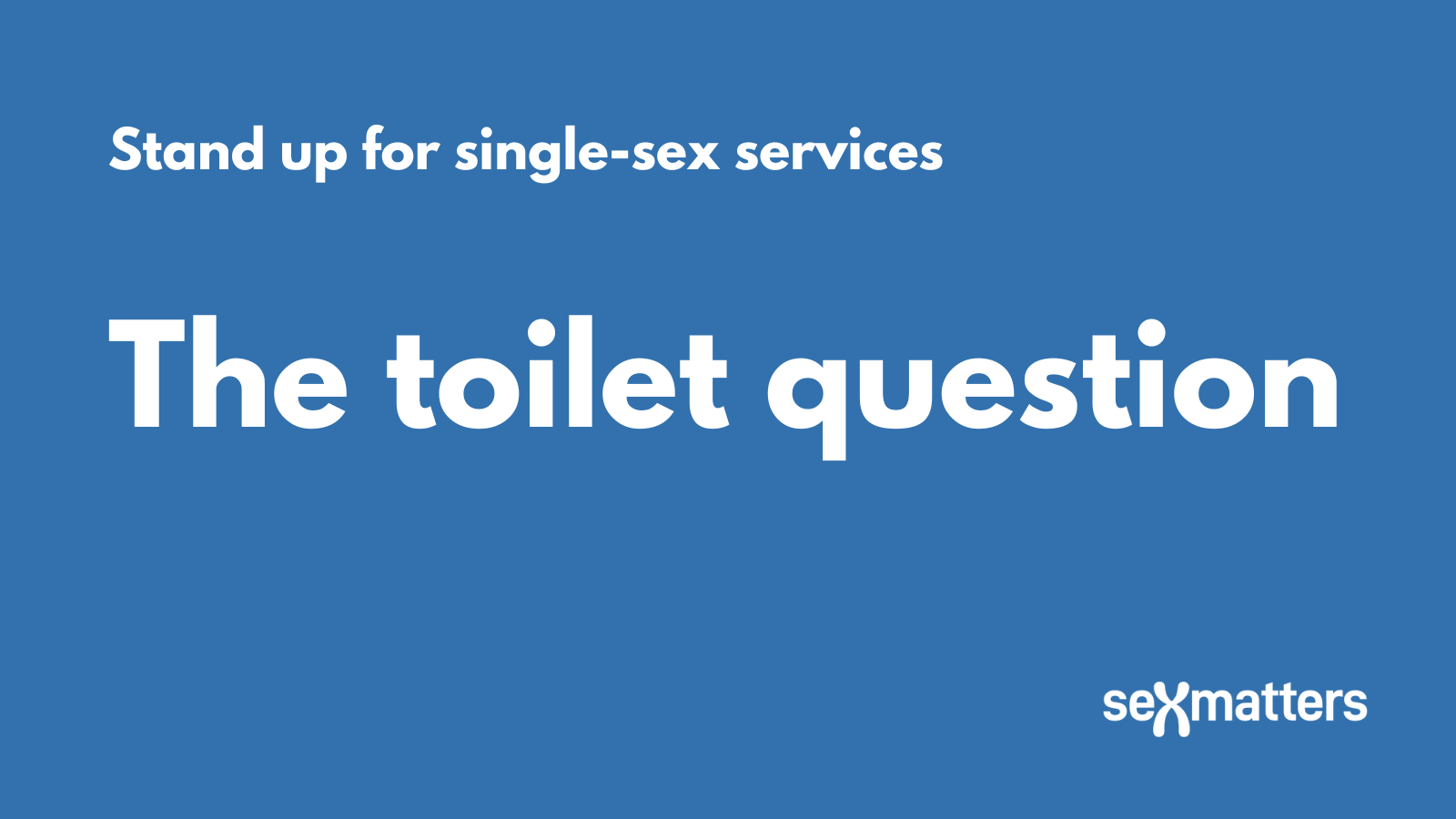
The vexed issue of toilets
“Where is the transwoman meant to go?” This question is being asked of politicians who talk about the need...
1st July 2024
-
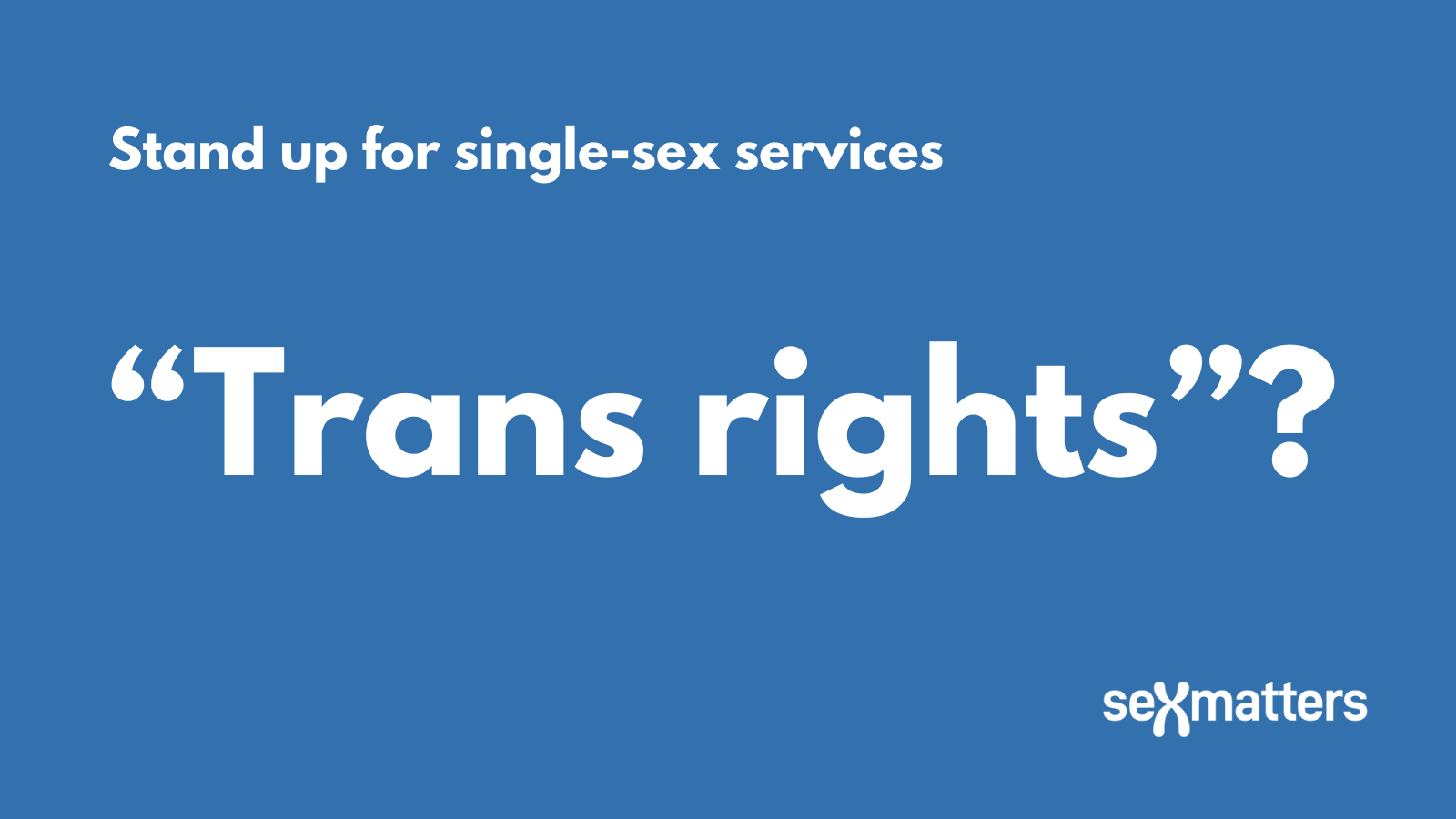
Why can’t we talk about women’s rights?
Trans rights are not women’s rights Local and national politicians, chief executives of sports governing bodies, head teachers and...
26th June 2024
-
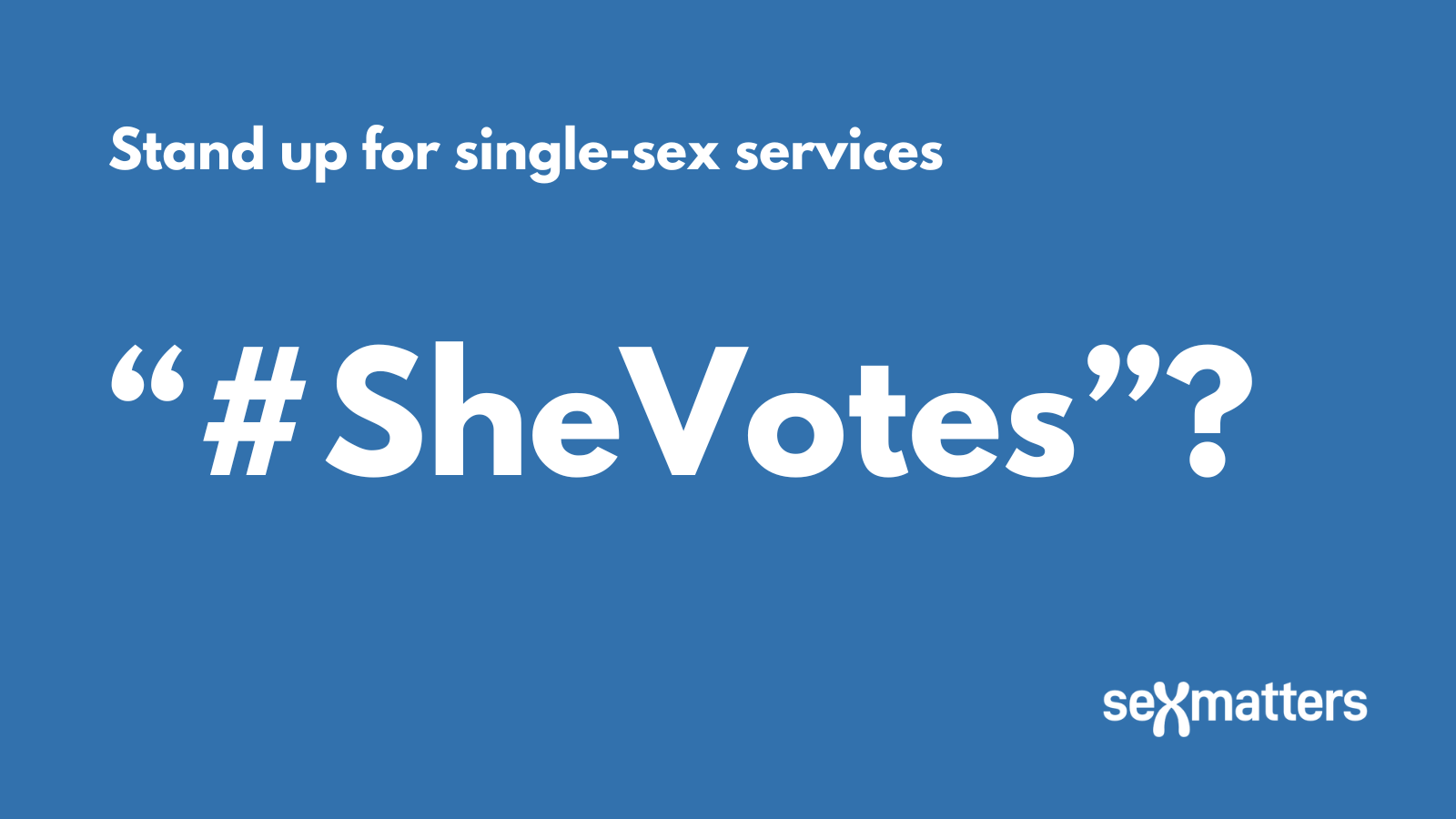
SheVotes24 – when will the women’s sector stand up for women?
The Fawcett Society, together with more than 120 women’s organisations, has launched #SheVotes24: an open letter calling on all...
25th June 2024
-
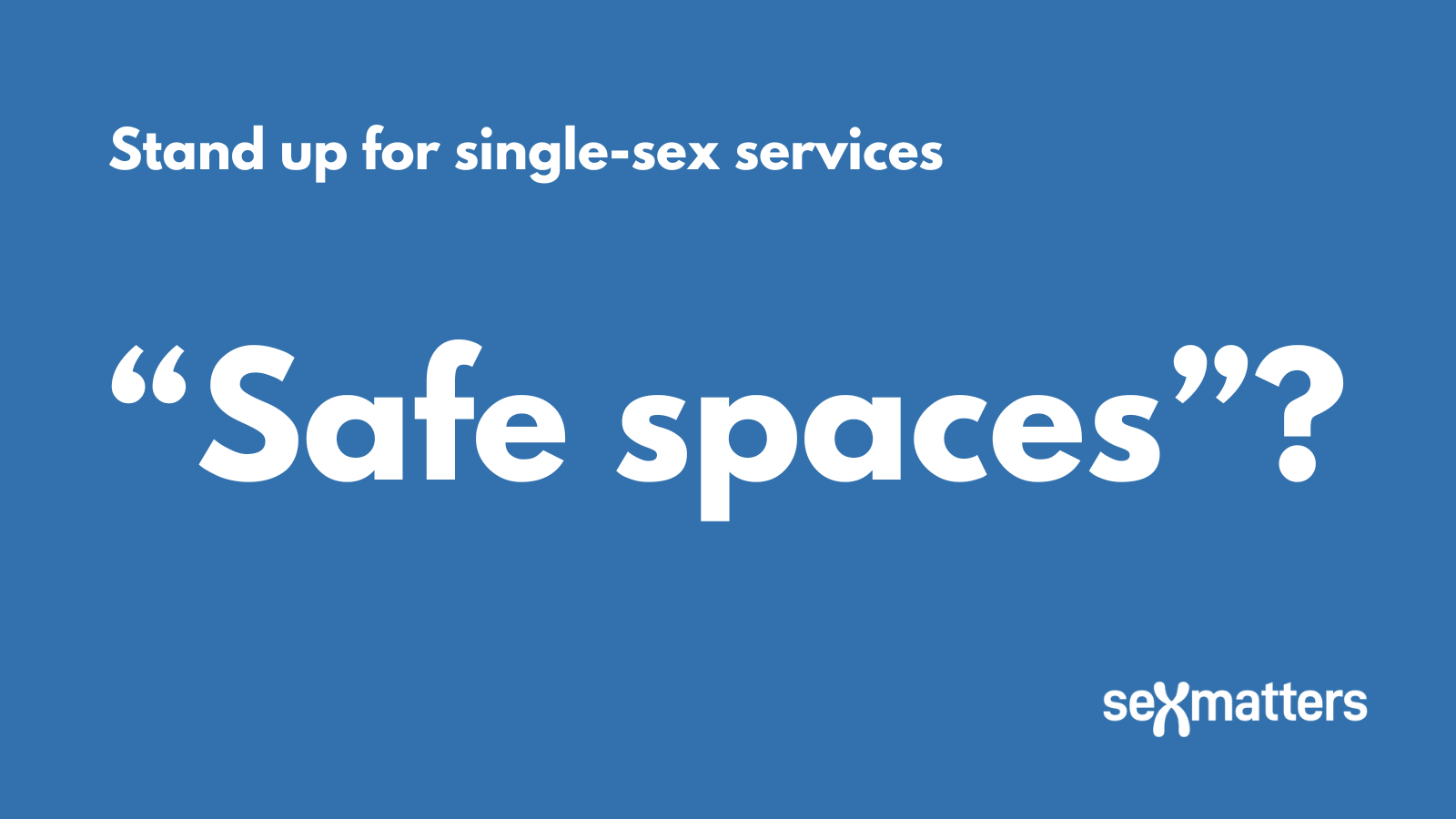
Why this is not about “safe spaces”
Sir Keir Starmer keeps talking about “safe” spaces instead of “single-sex” spaces. He said it most recently on LBC,...
20th June 2024
-
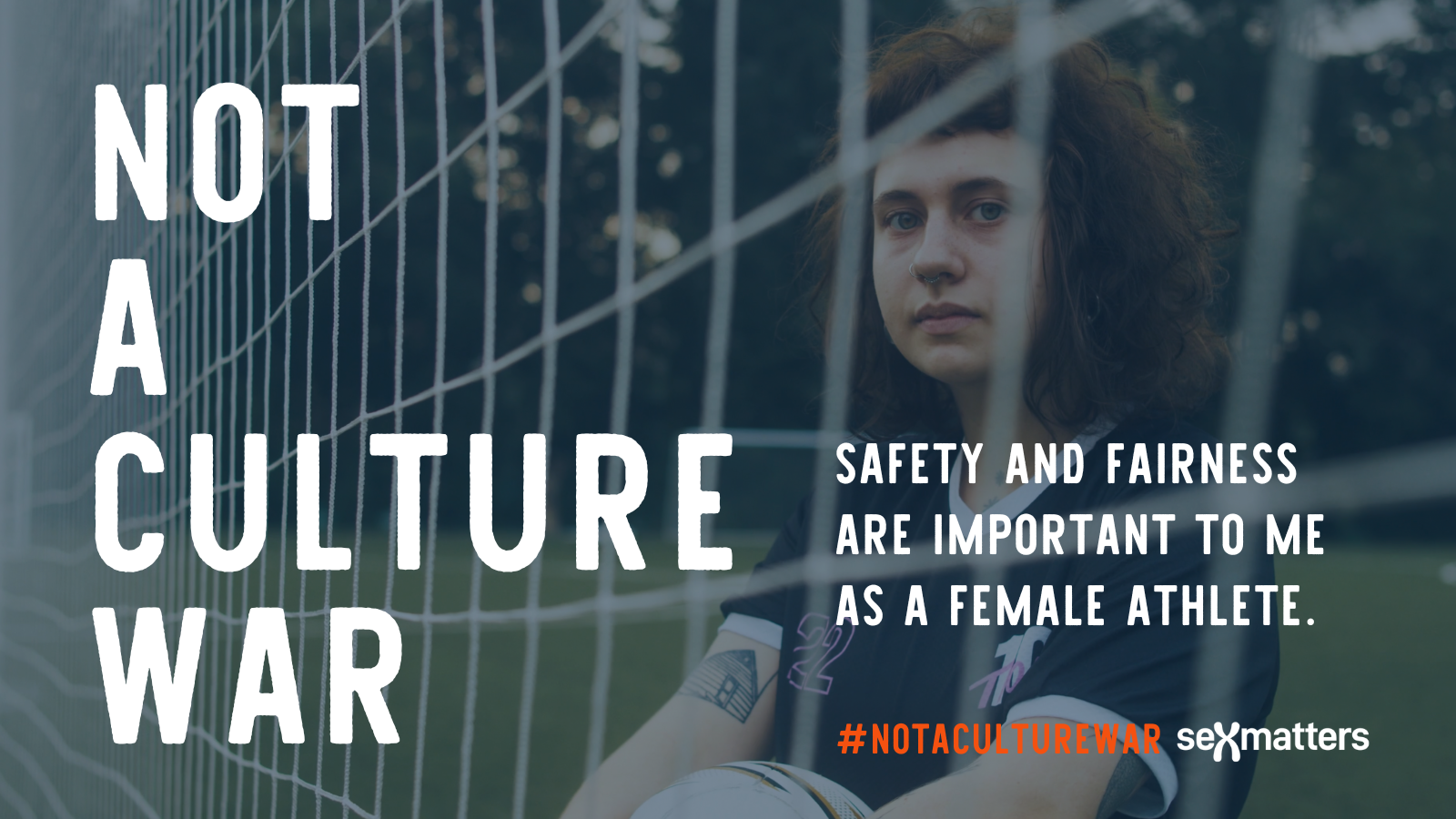
Not a culture war: what’s really at stake
The law is not working for women. The Equality Act protects women (and men) from sex discrimination. It also...
18th June 2024
-
Maya Forstater on TalkTV, 17th June 2024
Maya Forstater joins Kevin O’Sullivan on TalkTV to discuss Tony Blair’s comments on sex and gender.
18th June 2024
-
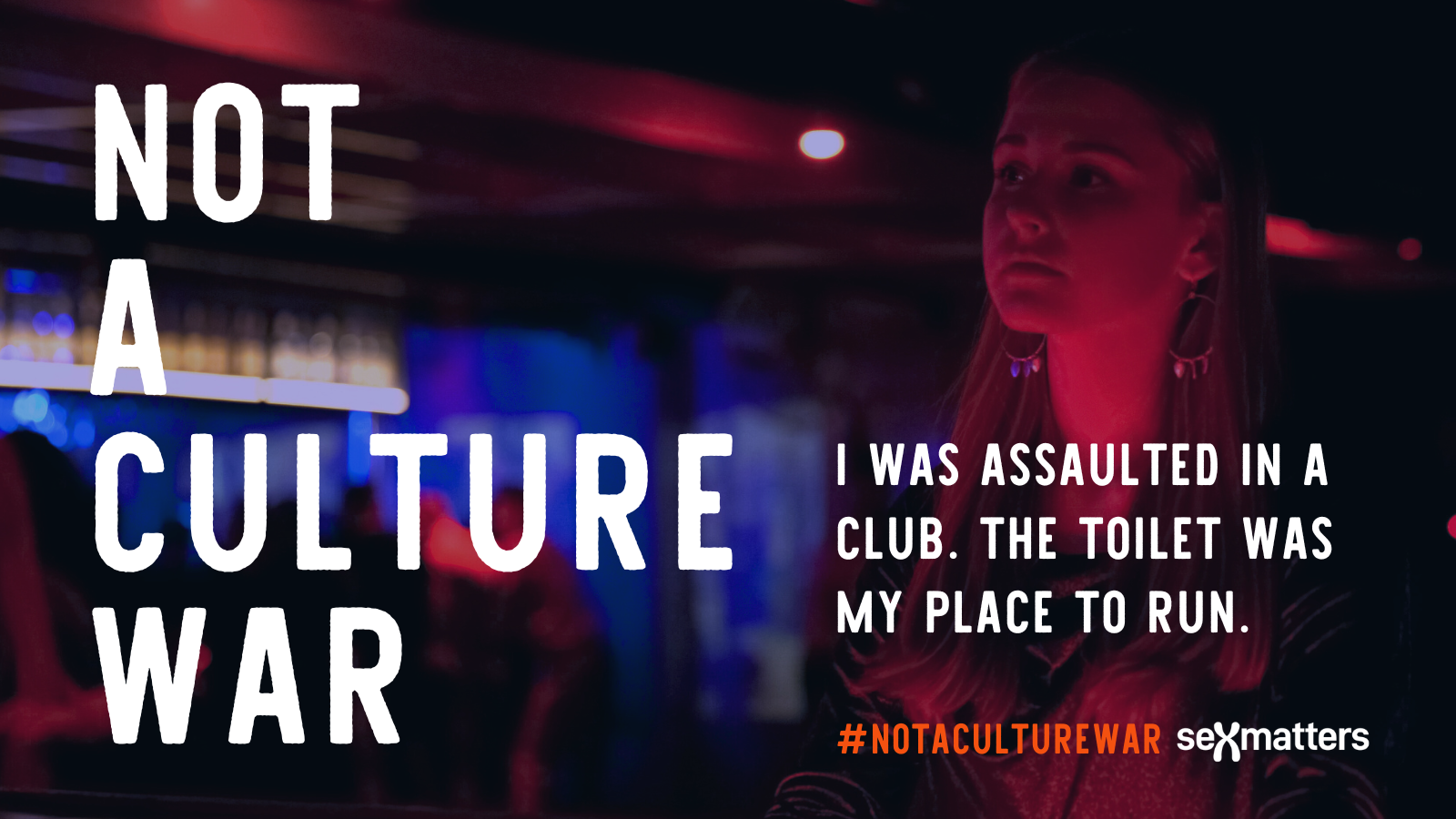
This is not a culture war
The Labour leader Sir Keir Starmer said in an interview last week: “People are exhausted by culture wars. My...
17th June 2024
-
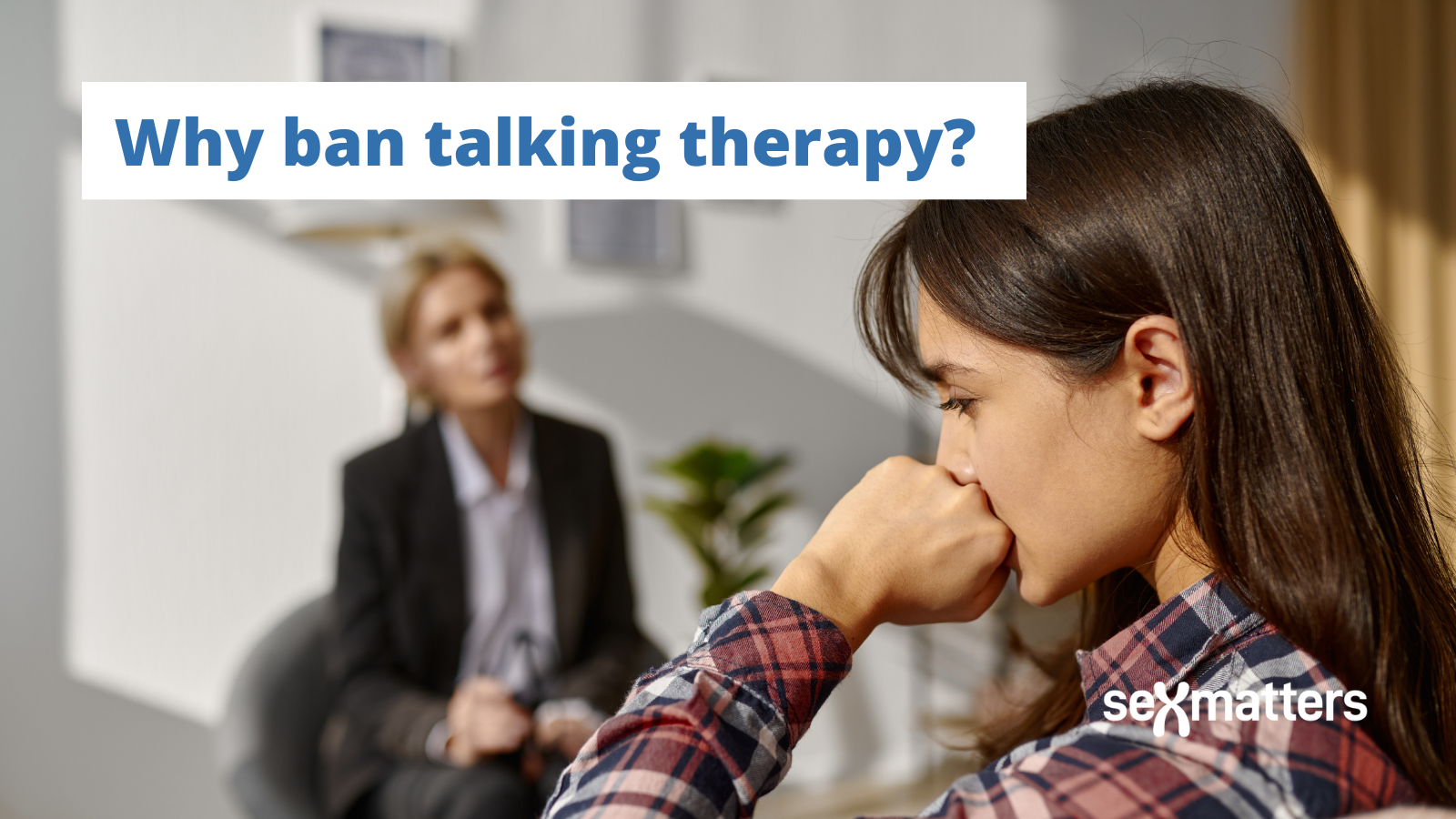
Calls to ban conversion therapy put children at risk
Proposals to ban conversion therapy or conversion practices are likely to feature among the pledges of political parties as...
11th June 2024
-
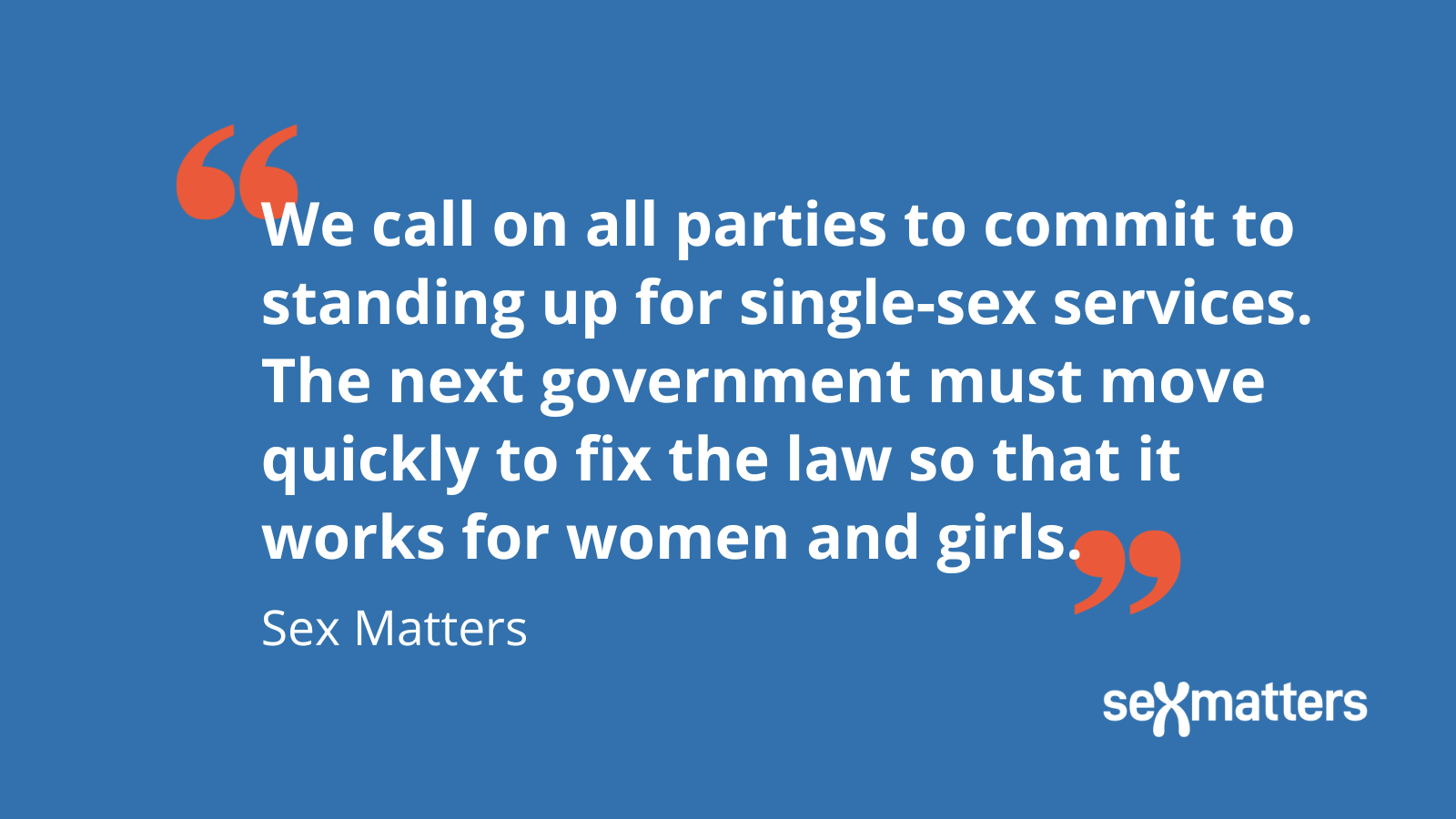
It’s time to make the Equality Act clear
The Conservatives announced today that if elected they would make a simple one-line amendment to clarify that “sex” in...
3rd June 2024
-
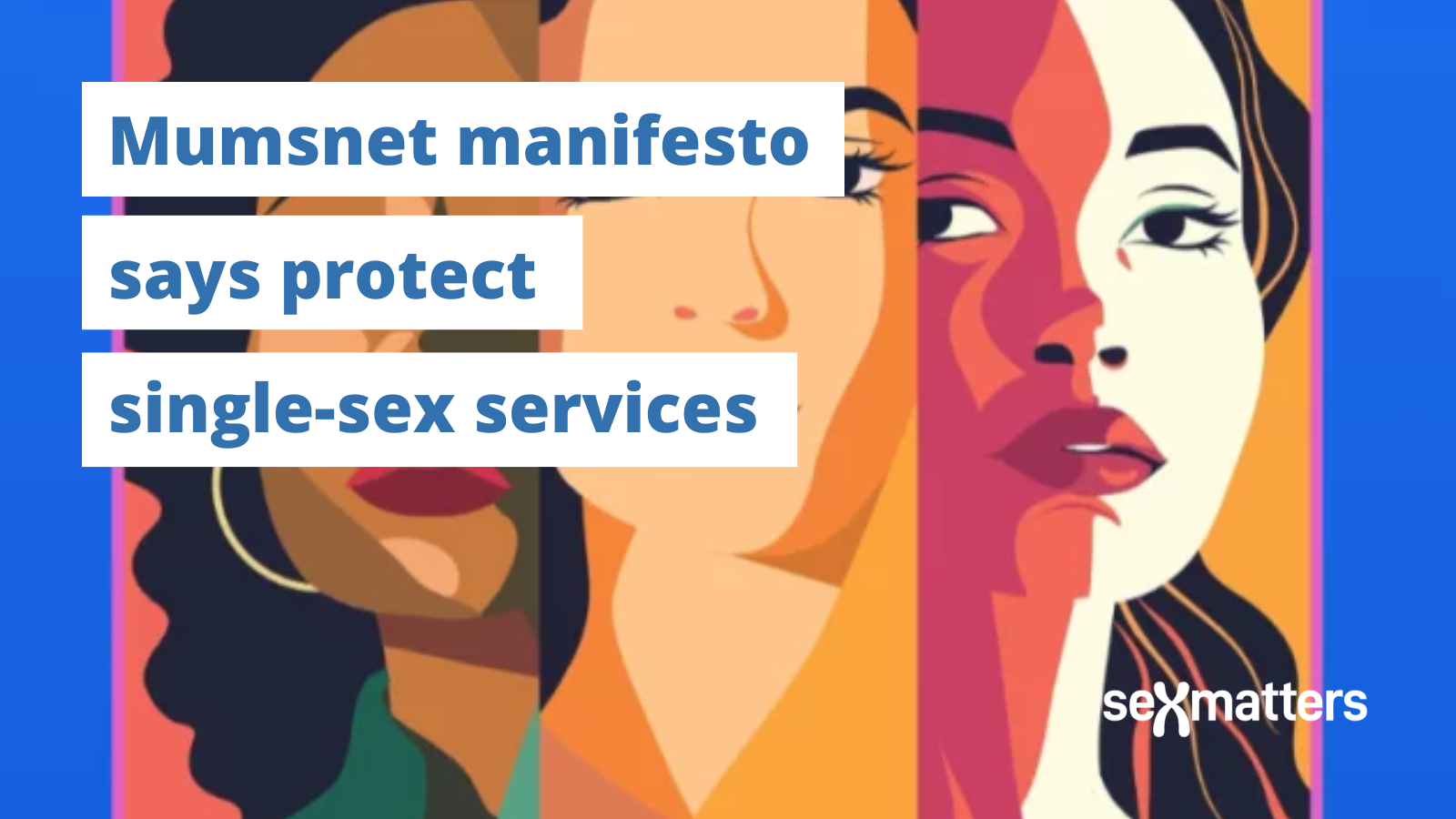
Mumsnet calls for government to make the Equality Act clear
The first ever Mumsnet manifesto urges the next government to define what a woman is in the Equality Act...
2nd June 2024

